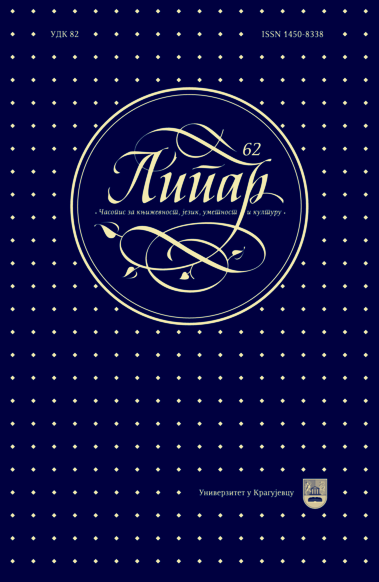ИНТЕРКУЛТУРАЛНОСТ У ПОРЕДБЕНИМ
ПРИДЕВСКИМ ФРАЗЕОЛОГИЗМИМА СА ЗНАЧЕЊЕМ КАРАКТЕРНИХ ОСОБИНА ЧОВЕКА У СРПСКОМ И ЕНГЛЕСКОМ ЈЕЗИКУ
INTERCULTURALITY IN SERBIAN AND ENGLISH SIMILES REFERRING TO PERSONALITY TRAITS
Author(s): Gorica R. TomićSubject(s): Language and Literature Studies, Foreign languages learning, Theoretical Linguistics, Lexis, Comparative Linguistics
Published by: Универзитет у Крагујевцу
Keywords: similes; personality traits; Serbian; English; interculturality
Summary/Abstract: The paper examines Serbian and English similes which refer to personality traits and have the adjective (part A) + as (part B) + noun/noun phrase (part C) structure. The similes are excerpted from monolingual and bilingual Serbian and English phraseological dictionaries based on their structural-semantic equivalence. These are first analyzed with regard to their connotative meanings and then divided into positively and negatively colored ones. Within each group, the examples are organized around the personality trait they refer to and compared in terms of their C part with the aim of exploring similarities and differences between the cultures in question. Based on such an analysis, it appears only partially true that similes represent an idiosyncratic feature of language as the corpus demonstrates striking similarities when it comes to the traits such as: goodness, industriousness, dependability, quietness, punctuality, bravery, slyness, callousness, timidity, dishonesty, unreliability, and stubbornness. Furthermore, most similes which have an animal in their C part are negatively colored. The reason for this may lie in The Great Chain of Being in which animals are perceived as a lower form of life and as such inferior to people.
Journal: Липар - часопис за књижевност, језик, уметност и културу
- Issue Year: XVIII/2017
- Issue No: 62
- Page Range: 169-182
- Page Count: 14
- Language: Serbian

